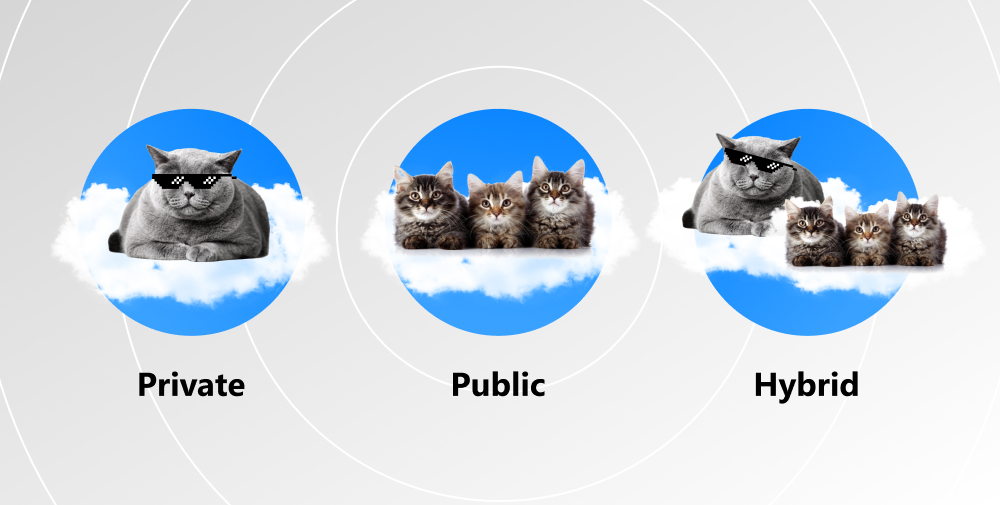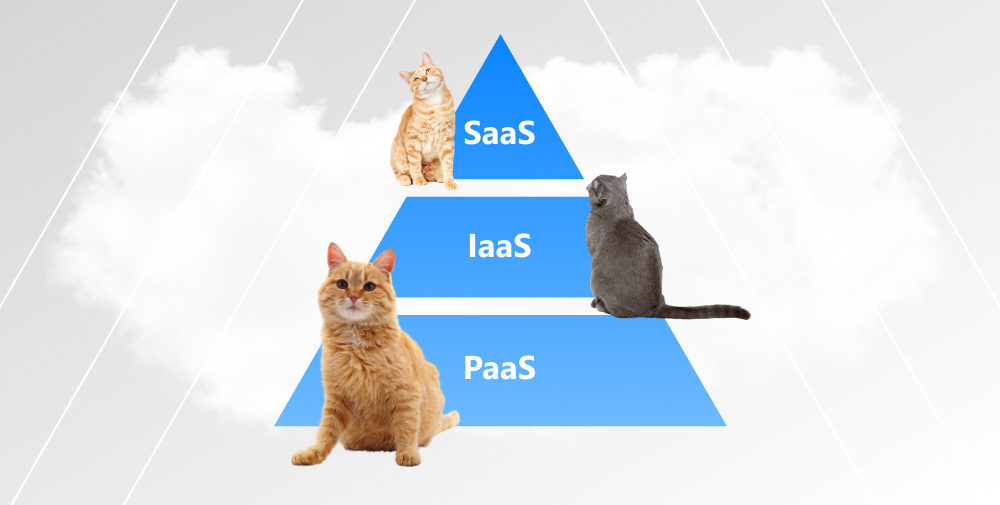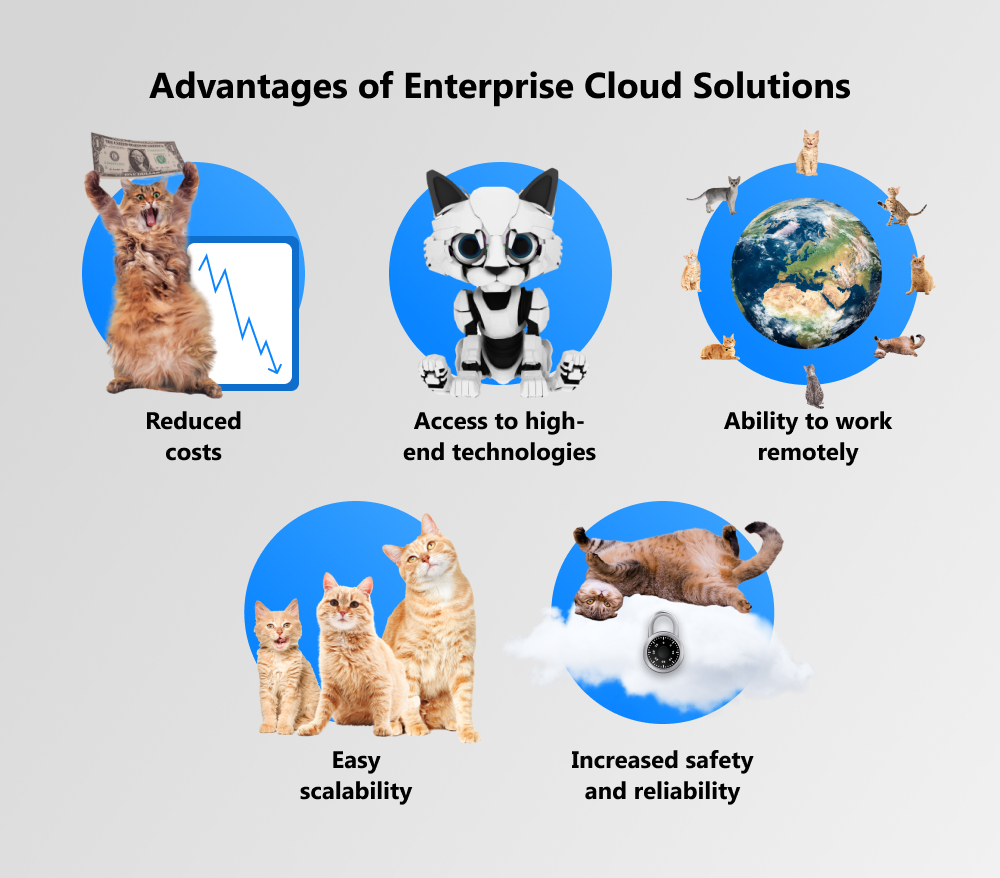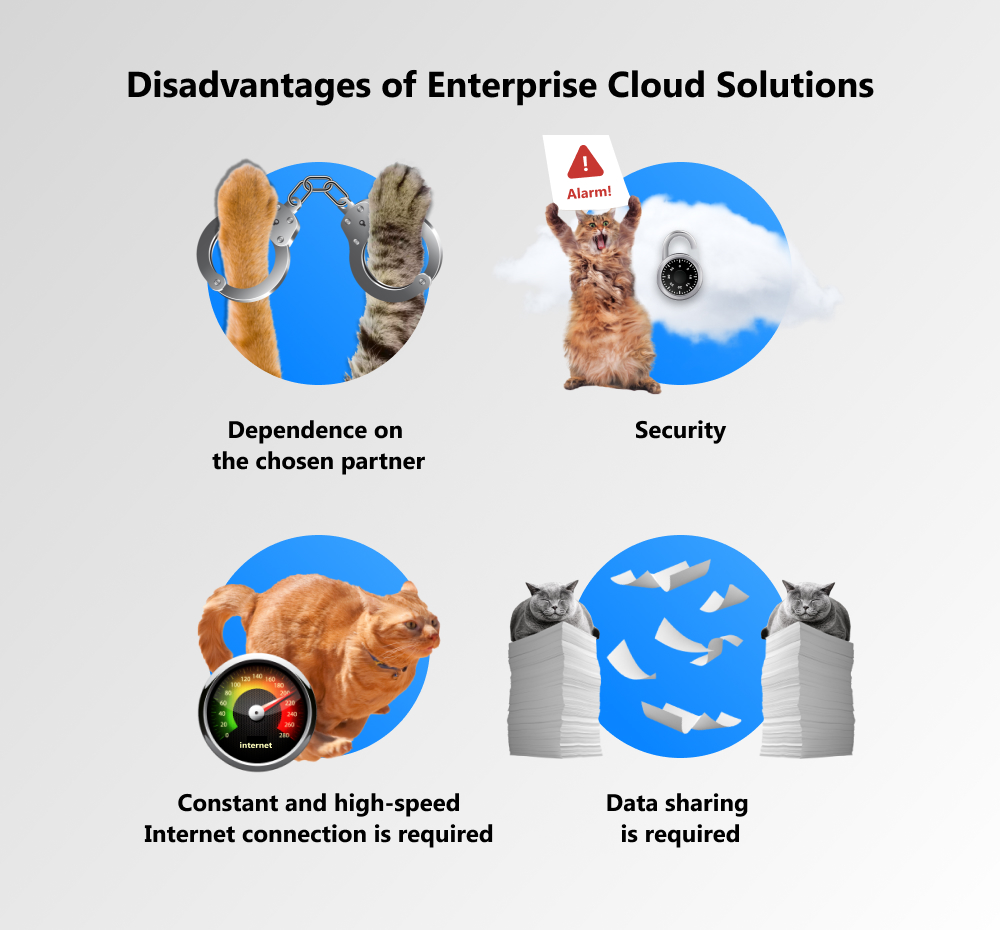The global cloud computing market stood at $250.04 billion in 2021 and is expected to reach $791.48 billion by 2028 with a compound annual growth rate of 17.9%, according to Fortune Business Insights. Today, enterprise cloud solutions are used in almost all industries, including retail, banking, healthcare, education, and others. Why are these technologies so popular?
Cloud computing solutions allow companies to reduce IT infrastructure and equipment costs, gain access to the latest technologies, increase their competitiveness, and make their business processes flexible and scalable. Let's talk about cloud-based technologies, look at their types and models, explore their application areas, and discuss their advantages and disadvantages.
written by:
Sergey Pupkevich
Head of Java Tech Cluster, Qulix Systems
The global cloud computing market stood at $250.04 billion in 2021 and is expected to reach $791.48 billion by 2028 with a compound annual growth rate of 17.9%, according to Fortune Business Insights. Today, enterprise cloud solutions are used in almost all industries, including retail, banking, healthcare, education, and others. Why are these technologies so popular? Cloud computing solutions allow companies to reduce IT infrastructure and equipment costs, gain access to the latest technologies, increase their competitiveness, and make their business processes flexible and scalable. Let's talk about cloud-based technologies, look at their types and models, explore their application areas, and discuss their advantages and disadvantages.
Contents
Enterprise Cloud Solutions: Types and Models
Enterprise cloud technologies include IT services that allow businesses to solve any problems by gaining remote access to applications and computing resources (networks, storage, servers, applications, and services). No matter what industry your company is in, you will always be able to appreciate the effectiveness and usefulness of the cloud infrastructure. The size of your business is also not important as an enterprise cloud solution offers great opportunities for large, medium, and small organizations.
Modern enterprises can't do without IT infrastructure that consists of computer hardware, software, network services, e-mail, monitoring systems, information security policies, control systems, backup and data storage systems, office equipment, telephony, and much more. But enterprises need money to buy and maintain this equipment. What should those that don't have the resources for expensive technologies do?
This issue can be easily resolved with the help of cloud servers and services. Moreover, a cloud service provider is responsible for maintaining, updating, and configuring these technologies. At the same time, you can decide for yourself which services and resources to choose, as well as disable them when they are no longer needed. Thus, you will pay for the actual capacities used, saving on IT staff and maintenance.
The pandemic and COVID-19 have also contributed to the rise in the popularity of enterprise cloud services. For example, Deloitte explains the increased cloud demand by the transfer to remote work and the ongoing economic crisis. Companies are rebuilding workflows, optimizing costs, and adjusting the scale of computing power to match the changing intensity of business processes. Cloud infrastructure is ideal for remote working.
Exploring Types of Clouds
There are three main cloud types depending on where the services are located and how they are deployed.
Private cloud
A private cloud is available for one company through a secure network. It can be placed on your own physical server, or it can be provided by cloud providers.
Advantages:
- high visibility;
- the possibility of personalization;
- first-class security and control;
- high flexibility and scalability.
Disadvantages:
- high price;
- difficulty in maintenance (you may need your own personnel for maintenance).
Public cloud
A cloud provider provides a public cloud to multiple users simultaneously. In this case, your partner is responsible for maintenance. This is the most popular and cheapest way to store your information.
Advantages:
- easy to use;
- cheap;
- quick start and scaling;
- in-house IT specialists are not needed.
Disadvantages:
- great vulnerability to cyber-attacks;
- risk of data loss in case of an accident;
- backup costs.
Hybrid cloud
Hybrid cloud is a combination of private and public cloud solutions. The resources are usually integrated into a unique environment and distributed across the clouds to ensure top performance. The private component guarantees security, and the public one helps to manage auxiliary business applications like e-mails and CRM. This model is in demand among medical institutions, legal and financial organizations. This allows them to safely share data with third parties.
Advantages:
- simple and fast scaling;
- technical support ensured by the provider;
- convenient environment for developing and testing apps.
Disadvantages:
- more expensive than a public cloud;
- you need specialists to integrate private and public clouds.
There is another model known as a multi-cloud solution. This means that you can use multiple clouds, but without sharing data between them. Gartner believes that 75% of large and medium-sized businesses will use hybrid or multi-cloud solutions.
Looking at Cloud Computing Models
In addition to cloud types, companies can choose the following service models:
SaaS - Software as a Service
This is the simplest and most common model, according to which the services are developed and maintained by a provider. Users have access to the services via an internet browser or app. All updates are monitored by the provider, and the customer only pays for the resources used. They can use file storage, office programs, social networks, and so on. End users are the major customers of SaaS systems.
The most popular SaaS applications are Google G Suite apps, such as Google Docs and Microsoft Office 365.
IaaS - Infrastructure as a Service
IaaS users have access to virtual servers and memory sizes. All hardware is located on the territory of the provider that installs software for deploying virtual machines, and the user just installs and maintains its own applications. This model is perfect for you if you need to increase and then decrease computing resources (e.g., in retail).
Amazon Web Services, Microsoft Azure, Google Cloud Platform, and IBM Cloud provide these services.
PaaS - Platform as a Service
According to this model, the customer gets access to the operating system, application development and testing tools, as well as database management instruments. These systems are most often used by software developers.
Salesforce Heroku and Force.com are the most well-known PaaS providers.
Enterprise Cloud Computing: Benefits
Using cloud solutions, you get the following benefits for your business:
Reduced costs
Using an enterprise cloud solution frees you from having to buy expensive equipment and hire IT specialists. You pay only for the used amount of resources, which you can quickly add or remove.
Access to high-end technologies
You will be able to take advantage of computing power to store, analyze, and process your data. Few businesses can afford to purchase and maintain a full-fledged data center.
Ability to work remotely
Your employees are no longer rigidly tied to their office; they can work with their data and applications from anywhere in the world.
Easy scalability
You can easily scale the consumed resources depending on changing loads. Do your business processes require resources permanently? If not, rent them when required (e.g., you need additional capacities to process more data for a short period of time).
Increased safety and reliability
The reliability and security provided by cloud providers are much higher than that of local resources. They use all the necessary protection measures like encryption, password managers, multi-factor authentication, access control, and others.
Possible Pitfalls related to Enterprise Cloud Services
These technologies offer a lot of cool benefits and opportunities for companies, but there are several drawbacks.
Dependence on the chosen partner
You will have to use the services and offers of a particular developer who owns the cloud platform.
Security
This is both an advantage and disadvantage. As above-mentioned, public clouds are susceptible to hackers.
Constant and high-speed Internet connection is required
It's impossible to work with the cloud solution without the Internet. You need a constant, stable, and uninterrupted Internet connection to be able to use cloud technologies.
Data sharing is required
The provider will have access to your confidential information in spite of the fact that you can sign a non-disclosure agreement.
Leading Enterprise Cloud Computing Providers
Canalys report demonstrates that in Q4 2020, AWS ranked first again among top cloud providers, leaving behind Azure, Google, and Alibaba clouds. Let's look at the leading companies providing enterprise cloud platforms.
Amazon Web Services is a group of web services designed for leasing different resources depending on the goals of users and having different functionality. AWS provides a wide range of PAAS and IAAS services, as well as elastic block storage, elastic beanstalk, simple storage service, NoSQL database, and relational database service. It also offers development, networking, as well as data processing and management services.
Microsoft Azure is a convenient platform for hosting your IT infrastructure in the cloud. It enables customers to build and scale mobile and web applications, run Windows Server and Linux virtual machines, manage a SQL database, as well as provides cloud analytics and predictions, and much more.
Google Cloud is a powerful cloud platform that improves data management and reduces the additional expenses on managing infrastructure, maintaining servers, and setting up networks. It includes robust tools, application engine, cloud storage, BigQuery, Container Engine, and Compute Engine.
Alibaba Cloud is a cloud platform that offers a variety of high-performance business-oriented cloud services, such as data storage, relational databases, big data processing, content delivery networks, and so on.
IBM Cloud is a cloud-based platform that allows users to develop and deploy web, mobile, and integration applications. It supports a great number of enterprise environments and other tools.
Are You Ready to Migrate to the Clouds?
So, enterprise cloud solutions offer businesses a lot of opportunities and benefits. How can you use the clouds? For example, to store numerous files, process and analyze big data, develop and test applications. What's more, you can deal with them just to get simple web access to communication and collaboration tools, which is especially important during pandemic times when thousands of companies have to work remotely.
If you still have any questions regarding enterprise cloud technologies, don't hesitate to ask our specialists. For more detail, please visit our website or get in touch with our support team.

Contacts
Feel free to get in touch with us! Use this contact form for an ASAP response.
Call us at +44 151 528 8015
E-mail us at request@qulix.com










